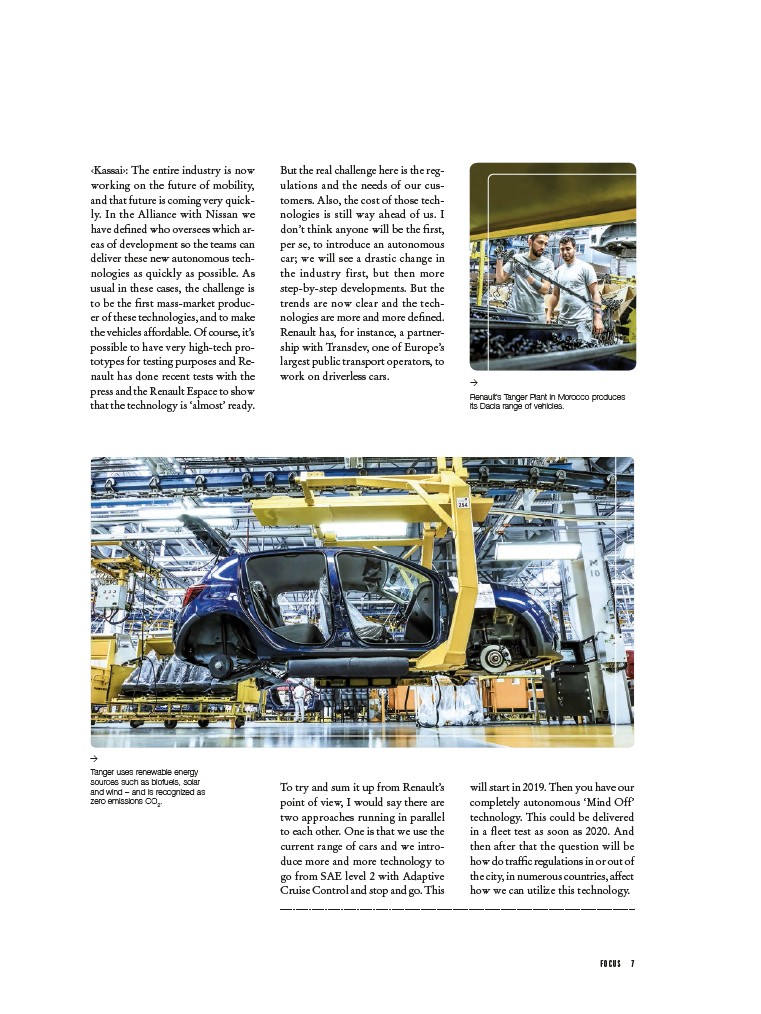
F O C U S 7
‹Kassai›: The entire industry is now
working on the future of mobility,
and that future is coming very quickly.
In the Alliance with Nissan we
have defined who oversees which areas
of development so the teams can
deliver these new autonomous technologies
as quickly as possible. As
usual in these cases, the challenge is
to be the first mass-market producer
of these technologies, and to make
the vehicles affordable. Of course, it’s
possible to have very high-tech prototypes
for testing purposes and Renault
has done recent tests with the
press and the Renault Espace to show
that the technology is ‘almost’ ready.
But the real challenge here is the regulations
and the needs of our customers.
Also, the cost of those technologies
is still way ahead of us. I
don’t think anyone will be the first,
per se, to introduce an autonomous
car; we will see a drastic change in
the industry first, but then more
step-by-step developments. But the
trends are now clear and the technologies
are more and more defined.
Renault has, for instance, a partnership
with Transdev, one of Europe’s
largest public transport operators, to
work on driverless cars.
To try and sum it up from Renault’s
point of view, I would say there are
two approaches running in parallel
to each other. One is that we use the
current range of cars and we introduce
more and more technology to
go from SAE level 2 with Adaptive
Cruise Control and stop and go. This
>
Tanger uses renewable energy
sources such as biofuels, solar
and wind – and is recognized as
zero emissions CO2.
>
Renault’s Tanger Plant in Morocco produces
its Dacia range of vehicles.
will start in 2019. Then you have our
completely autonomous ‘Mind Off’
technology. This could be delivered
in a fleet test as soon as 2020. And
then after that the question will be
how do traffic regulations in or out of
the city, in numerous countries, affect
how we can utilize this technology.